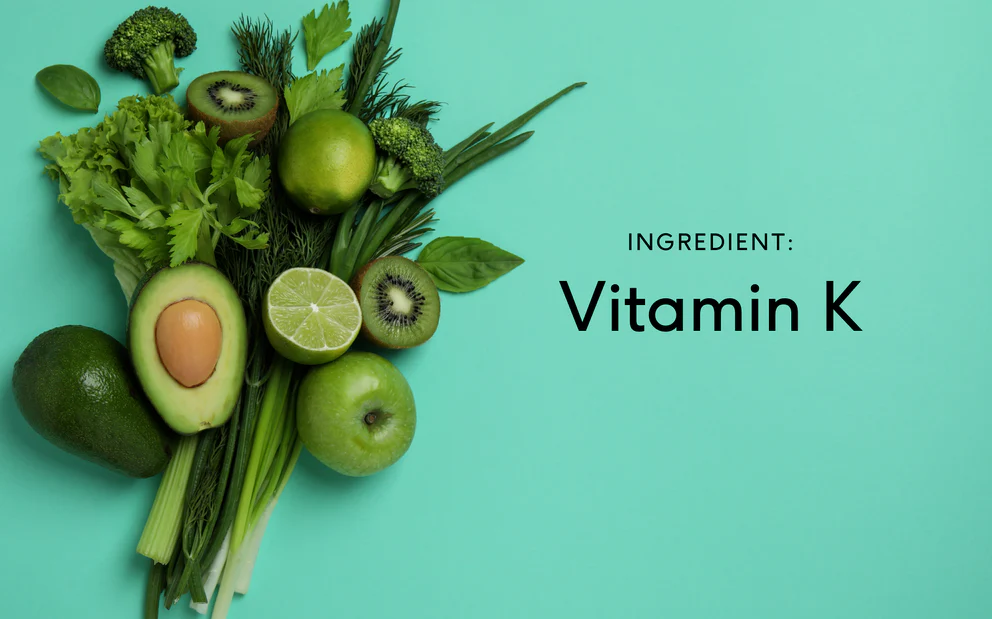- 0086-571-85302990
- sales@greenskybio.com
Vitamin K: Importance, Uses, and Dietary Sources
2025-08-31

Vitamin K is a crucial fat-soluble vitamin involved in blood clotting. Most individuals obtain an adequate amount of vitamin K through dietary sources, but newborns require supplemental vitamin K as they do not produce it immediately and breast milk contains insufficient levels.
Uses and Forms of Vitamin K
Vitamin K exists in two forms: vitamin K1 (phylloquinone) found in various foods and vitamin K2 (menaquinones), synthesized by intestinal bacteria. As a fat-soluble vitamin, vitamin K is absorbed with fats and stored for future use.
While supplemental vitamin K's role in disease prevention is limited, it remains vital in treating vitamin K deficiency, which is rare in the United States. Newborns typically receive a vitamin K injection within six hours of birth to prevent deficiency.
Research has explored vitamin K's potential benefits for:
Blood Clotting: Vitamin K is essential in producing proteins crucial for blood clotting. It can reverse anticoagulant effects in emergencies to prevent excessive bleeding.
Bone Health: Vitamin K is associated with bone health, though evidence on its impact on bone mineral density and osteoporosis prevention is mixed. Some studies suggest a combination with calcium may enhance bone mineral density.
Heart Disease Prevention: Vitamin K's role in activating matrix Gla-protein (MGP) suggests it might help prevent vascular calcification linked to heart disease, though this remains inconclusive.
Vitamin K Deficiency
Vitamin K deficiency, although rare in adults, is common in newborns. It's recommended to administer a vitamin K injection at birth due to poor vitamin transfer from the mother and low breast milk content. In adults, deficiency relates to malabsorption conditions like cystic fibrosis, celiac disease, and Crohn's disease, requiring supplementation.
Groups at risk for deficiency include newborns without vitamin K injection, individuals with gastrointestinal diseases, and those with pancreatic insufficiency or alcohol use disorder.
Symptoms of deficiency may involve easy bruising, bleeding, or skin conditions. Since blood vitamin K levels aren't routinely measured, prothrombin time is used to assess clotting efficiency.
Safety and Interactions
Consult healthcare providers before starting vitamin K supplements, as they may interact with medications such as anticoagulants and antibiotics. Vitamin K can reduce the effectiveness of blood thinners like warfarin, requiring consistent intake levels.
Dietary Sources of Vitamin K
Most individuals meet their vitamin K needs through diet. Leafy greens like spinach and collard greens are rich sources. Vitamin K is available in single-nutrient supplements and multivitamin products, though typically at lower daily values. It can also be found in combined formulations with fat-soluble vitamins A, D, and E.
Future Considerations
For overall health, ensure a balanced intake of vitamin K through diet while consulting healthcare providers regarding supplementation and interactions with other medications.
- ▶ Hesperidin
- ▶ Citrus Bioflavonoids
- ▶ Plant Extract
- ▶ lycopene
- ▶ Diosmin
- ▶ Grape seed extract
- ▶ Sea buckthorn Juice Powder
- ▶ Fruit Juice Powder
- ▶ Hops Extract
- ▶ Artichoke Extract
- ▶ Mushroom extract
- ▶ Astaxanthin
- ▶ Green Tea Extract
- ▶ Curcumin
- ▶ Horse Chestnut Extract
- ▶ Other Product
- ▶ Boswellia Serrata Extract
- ▶ Resveratrol
- ▶ Marigold Extract
- ▶ Grape Leaf Extract
- ▶ New Product
- ▶ Aminolevulinic acid
- ▶ Cranberry Extract
- ▶ Red Yeast Rice
- ▶ Red Wine Extract
-
Feverfew Extract
2025-08-31
-
Europen Bilberry Extract
2025-08-31
-
Mulberry leaf Extract
2025-08-31
-
Nutmeg Extract
2025-08-31
-
Astaxanthin
2025-08-31
-
Eyebright Extract
2025-08-31
-
Cat Claw Extract
2025-08-31
-
Sophora Japonica Flower Extract
2025-08-31
-
Chia Seed Powder
2025-08-31
-
Lemon Juice Powder
2025-08-31





















